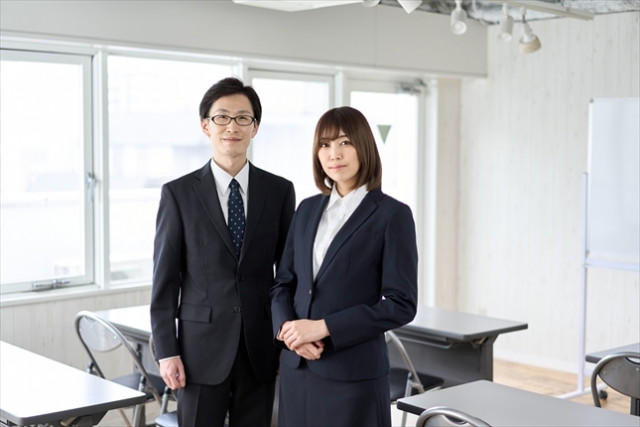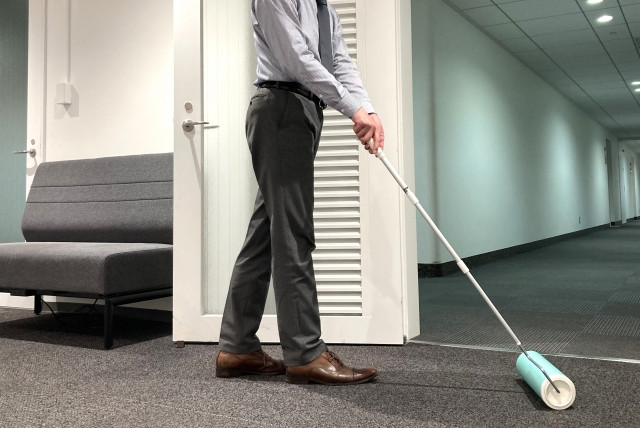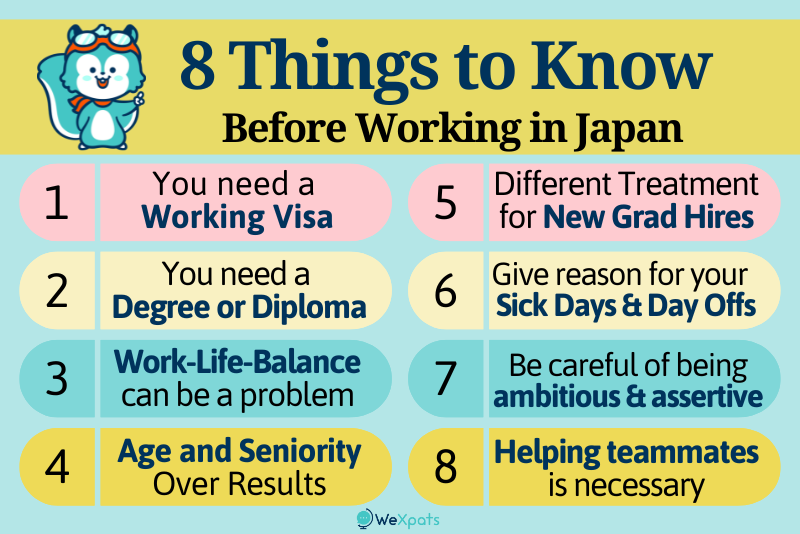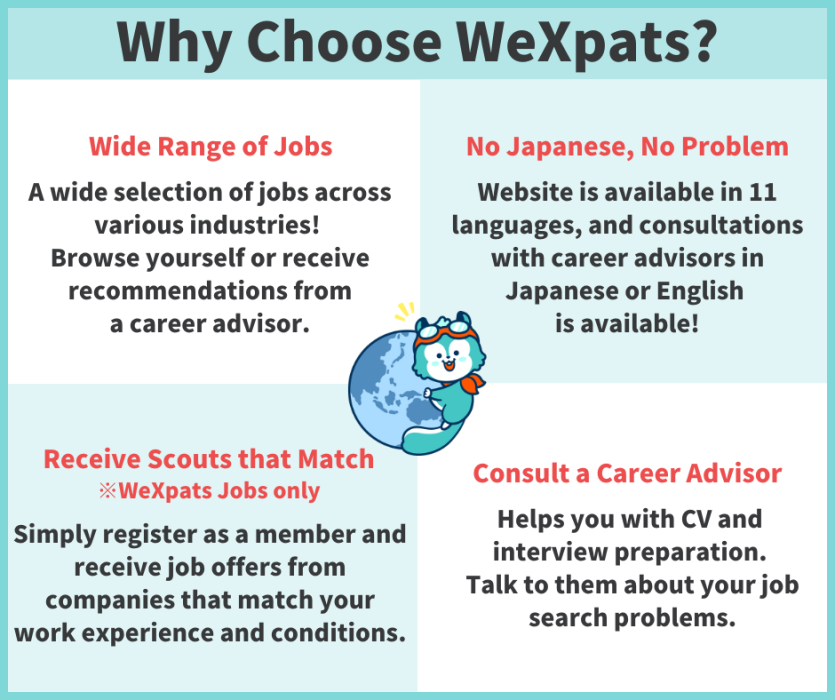Many fans of Japanese culture dream of working in Japan, but at the same time, there are also many people who have heard about how horrible working conditions in Japan are. They become fearful and worried to take the step to achieving their dreams. But is it true? Is Japan really such a bad place to live and work?
In this article, we will summarise the important things you need to know about Japanese work culture, work ethics and working environment so you can make a learned decision.
First Published: 2022-07-22
Updated: 2024-05-08
Table of Contents
- Uncovering Japanese Work Culture
- Working with Japanese
- How to Achieve Work Life Balance Amidst Japanese Work Culture
- Summary of 8 Things You Need to Know Before Working in Japan
- Find a Job in Japan with WeXpats
NOTE: While the topics discussed in this article are all things that many Japanese companies practise or have practised, this doesn’t necessarily reflect the values of the writers or all Japanese companies. This article is written based on data from both the Ministry of Labour as well as public surveys, and individual experiences from our team.
 Are you having any issues with job-hunting in Japan?
Are you having any issues with job-hunting in Japan?
Uncovering Japanese Work Culture

1. Working Hours in Japan - Overtime and Overwork?!
One of the biggest concerns about working in Japan is the working hours. “Overtime” and “overwork” are 2 words that people often associate with Japanese working culture. Is this true? Well, it really depends on the company and your employment contract.
On one hand, Japan had recently introduced the Work Style Reform (働き方改革 hataraki kata kaikaku) to combat the overtime and overwork culture had became the standards. The reform included endeavours to limit overtime hours per week, reduce the number of employees working overtime, enforce companies to allow employees to take paid leave, make workplace trouble consultation and support services more available, ensure fair treatment regardless of employment type, promote workplace diversity, and etc. Some of these changes came with consequences for companies with, among other things, excessive overtime and little to no paid leave.
The Ministry of Health, Labour and Welfare reported that in 2021, 97% of people worked 40 hours or less per week, showing an increase from previous years.
※Ministry of Health, Labour and Welfare, “週所定労働時間”
Further, employees are expected to take a minimum of 5 days paid leave per year, in addition to the 16 public holidays. Companies who fail to comply with these standards are fined. On the other hand, there are also individual company policies regarding working hours and time off, such as:
-
a set amount of hours relegated to unpaid overtime in one’s monthly salary
-
expecting employees to use paid leave for sick leave instead of providing them separately
-
setting specific days where employees are expected to use their paid leave to cover the “company’s days off” or denying paid leave during a busy season
Not all companies do these, but people from overseas are often surprised when they encounter this in their workplace. Thus, it is important to know your contract especially in regards to paid time off and overtime work expectations.
We recommend reading this article to learn more about the working hours in Japan and what a typical work week in Japan is like.
2. Focusing on Teamwork, Hourensou is Japanese Work Ethics

One of the important things you might hear and be taught when joining a Japanese company is the concept of 報連相 (hourensou).
To put it simply:
報 (hou) - To report
連 (ren) - To inform
相 (sou) - To ask for advice or consult
As most workplaces are organised into teams and departments, constant communication with one's team is not just highly valued but also a necessity. It may seem overbearing at times especially when coming from a culture where individual work gets priority or more emphasis, but individual work is seen as a small piece to the bigger picture that is team effort in Japan. Therefore, it’s seen as important to constantly inform your team of your progress.
3. Understanding Japanese Job-Hunting Culture
Job-hunting in japan is called 就活 (shuukatsu). It’s an organised process that university and vocational school students go through from around a year before they graduate. The Japanese job-hunting process is characterised by mass hiring and a strict schedule that most companies follow. Further, the criteria for getting hired is based on future potential rather than work-readiness. For those that come from overseas, this may be a very different process than your own.
As for non-fresh graduates, aka mid-career job changes, and those coming in from overseas, the process can be a little different. One can find a new job by searching online, going to job fairs, or relying on recruitment agencies.
4. Getting Promoted Takes A Long Time?!

Many promotions in Japan, called 社内昇進 (shanai shoushin), are based on seniority - the longer you’ve been in the company, the higher your position. This also usually means that your age factors in as well.
However, in recent years, as changing jobs has become more common practice, this is not always the case. There are more and more promotions based on experience and merit, and some people change jobs in order to get more leadership roles based on their experience.
It is true, however, that many foreign nationals feel that the promotion process is slow and takes too long, according to a survey conducted by Persol in 2019. If you are interested in moving up in your career, it would be wise to inquire what it usually takes to get promoted during the interview process.
※Persol, “日本で働く外国人材の就業実態・意識調査”
5. Wearing Formal is the Norm, or is it?

Japanese work culture also carries an image of being formal and stuffy. In Japanese companies, employees are expected to maintain a formal appearance. In general, the standard business and workplace attire in Japan requires men to wear traditional business attire consisting of a suit, and a tie in a subdued colour. As for women, more rules apply - not revealing clothing, blazers in the same colours of men’s suits, skirts may be allowed but not above knee level, simple make-up and jewellery only, and some companies may require women to wear high heels. Both men and women are expected to be well-groomed.
However, even this is experiencing changes. Nowadays, there are many Japanese companies that allow business casual or even full-on casual wear, with dressing formally limited to important company meetings and client meetups. Even so, employees should always dress neatly and decently. Whether a company’s management allows employees to wear a different type of attire also depends on the line of your work.
6. Being Flexible and Versatile Culture
You’d expect that your responsibilities at work would be limited to what your position and job details entail, but in Japan, oftentimes, employees end up doing tasks that they did not expect to be doing when they were hired. This is part of the “being flexible and doing what needs to be done” culture in many offices. This could mean anything from helping coworkers with their tasks apart from your own, making photocopies or tea for the whole team, etc.
7. Keeping the Place Clean

Many Japanese companies have their employees clean the office. This may come across as strange or even degrading to people from overseas, but this is normal in Japan given that students in elementary up to high school help clean the school, including toilets. In Japanese companies, there is usually a rotating schedule of cleaning tasks so everyone does their part. Cleaning tasks may include wiping surfaces, vacuuming, mopping, taking out trash, cleaning toilets, etc. Bigger companies may hire a cleaning company to handle the cleaning.
Writer's Pick
Working with Japanese

1. Open Office Layout for Better Communication

A Japanese office is often arranged in an open office set up. This means that the office floors are not composed of cubicles. Instead, there are rows of tables with sections for each team and employee. This makes it easier for employees to communicate with one another without a wall in between each person.
The arrangement also helps superiors to navigate the space easily and monitor each employees' work. In turn, employees can consult their superiors at any time, as they can see when the superior is present, on the phone, busy or gone for a meeting.
While not all companies look exactly like this, take a look at ours!
2. Many Japanese Business Etiquette & Rules

It is true that Japanese work culture consists of many business etiquette and rules that someone from overseas would be unfamiliar with. But, as a consolation, as long as one does not work in a corporate setting, there are also locals in Japan who do not know them all.
Japanese business etiquette includes everything from how to address superiors and colleagues, speaking and writing in proper honorific language (keigo), making and answering phone calls, writing business emails, and even knowing the right place to sit!
This aspect is also why many overseas people find Japanese work culture stuffy but it is important to know for better workplace and business communication. Changing your mindset to “it’s fun to learn new things” also helps you accept the differences from your own culture.
3. Polite Interactions with Everybody

At the start of a meeting, when seeing other employees in the office, or even when getting their attention, it's common to greet each other with「お疲れさまです otsukaresama desu」. It's simply a formal greeting which generally means "Thank you for your hard work".
The level of politeness in your interactions goes up if the person is your superior, whether in position or age. There's also a senpai-kouhai culture in many companies, where the older employee will help to mentor or train new and/or younger employee.
The politeness is of course extended to clients or business partners, as shown through customs such as serving them tea or coffee when they come to visit the office and bowing when they leave, sometimes even until the elevator doors close. Some companies even forbid employees from riding the same elevators as clients, allowing clients to take the elevator first.
Lastly, during work hours, employees are expected to treat each moment professionally. Refraining from small talk or unnecessary chatter would be one of the best ways to do so. While not every company has a explicit rule against small talk, employees should be mindful that many Japanese prefer to keep their personal life separate from their work and not everyone likes to be asked about their life outside of work. Then how do people get to know each other on a more personal level? Check out the nomikai section below.
4. Nomikai Culture in Japan

Nomikai (飲み会) are drinking parties. Coworkers and teams will often go drinking after work, either casually or in celebration of something. This is usually done to form bonds over a more relaxed environment, especially when being in the office doesn't provide opportunities to do so.
While these cannot be made compulsory by law, there are companies or teams that make it seem like they are mandatory. However, in more recent years, people have been more mindful of respecting employees’ decisions not to attend.
As for types of nomikai, there might be end of the year parties (忘年会 bounenkai), welcome (to the company/team) parties (歓迎会 kangeikai), retirement parties, end of project parties, etc. Some companies or teams make any occasion a nomikai occasion!
5. Giving Out Omiyage to Coworkers
Coworkers often buy souvenirs for their team or office when going on a trip, whether for fun or for business. This custom of omiyage (お土産) or souvenirs means you bring back something for each person - usually individually packaged local sweets and snacks sold in sets for this exact purpose. It is a thoughtful gift to show you are thinking of your coworkers even when you’re away, and also acts as a gesture of gratitude (or even apology) for your absence at work which may have inconvenienced them.
Depending on the culture in your workplace, people may expect omiyage from you if you’ve talked about going somewhere over the weekend or holiday. This makes giving omiyage a pressure and an obligation. Therefore, if you really don’t want to buy souvenirs for everyone for whatever reason, it is best to keep your plans to yourself. However, if you’ve been on the receiving end of lots of omiyage, it does not hurt to give back something once in a while.
6. Participating in Endless Meetings

One thing you might hear about working in Japan is the endless meetings. The Japanese work culture of meetings goes back to the Hourensou concept discussed above. You could say that there are downsides to having so many meetings, such as less time to work which causes a backlog resulting in employees having to work overtime.
For many foreign nationals unused to the culture, the meetings are tiring, repetitive, and pointless. However, these meetings also play an important role which is to touch base and make sure everyone is up to speed on updates, sharing information and for discussions. Then, everyone makes a decision as a team. (The movie Shin Godzilla and its scenes of meeting after meeting is a perfect taste of what it’s like.)
At the end of the day, it really depends from company to company how meetings are run, the purpose of meetings to be held, and what topics are considered essential enough to hold a meeting.
How to Achieve Work Life Balance Amidst Japanese Work Culture

With how different Japanese work culture is, it can be tricky and even stressful to navigate. Achieving work life balance is important to maintain your physical and mental health. Sometimes, even just a change of mindset can help accepting things easier.
Here are some tips on how you can achieve work life balance and a healthy mindset.
1. Finding Your Own Motivations to Work in Japan
There are many reasons that people want to work in Japan, but is having a good reason enough to overcome the difficulties of Japanese work culture? Maybe! A change of mindset can go a long way. Whether it’s a high salary to support your family, the better social welfare and employee benefits in Japan compared to your own country, or your love for Japanese culture, sometimes all it takes is a reminder of why you took that first step to work in Japan to re-discover your motivations. Making a pros and cons list may also help.
2. Learning to Speak Up
Sometimes all it takes is the courage to say “No”. Saying “no” in Japanese culture is an art in and of itself. Whether you’re simply declining something offered to you, or you have to explain why you can’t make it to an event, or why you can’t accept something offered by a friend or colleague, it’s important to make sure you’re not being rude!
We recommended reading this article on how to politely decline in Japanese with examples.
Additionally, if you find your workload too heavy or working hours too long, it doesn’t hurt to discuss it with a trusted superior. Bring up, or give them the opportunity to suggest, flexible working hours, remote work, re-assigning tasks, etc. to lighten your load.
3. Schedule Personal Time

Taking paid leave, planning holidays, time for your own hobbies, spending time with family, a day dedicated to resting, etc. are also important for achieving work life balance. In many cases, it’s “easier said than done”, but starting with setting your priorities and paying attention to your physical and mental health will alert you to when more drastic action needs to be taken, which leads us to…
4. Consider Changing Jobs
Perhaps this company just isn’t the right fit for you. With so many companies in Japan, naturally each company has their own working culture and style. If you find your current company or job too suffocating, it might be time to move on.
Changing jobs is not a bad thing. Many people change jobs for various reasons, whether it’s for a better salary, more flexible working style, different work location, bad workplace relationships, etc. Finding a work environment that suits you is important considering how many hours a day we spend at work. There are many resources for changing jobs available including recruitment agencies that can help you find a job with your desired working conditions.
We recommend reading this article about how to change jobs in Japan, especially in relation to the immigration rules that necessitates submission of a notification whenever you change jobs.
5. Changing Employment Type
This is different from the above “changing jobs”. You may love your current job, but a full-time job may be too taxing on you for whatever reason. If that’s the case, cutting down on your working hours may be the right way to go. Other employment type options in Japan include part-time (アルバイト), contract (契約社印), and even freelance. Discuss with your company on whether these options are available to you, or change jobs.
Each of these employment types comes with their own share of pros and cons, so make sure to do your due diligence. For example,
-
part-time jobs generally let you pick your shift and have shorter working hours, but pay is hourly so you may not earn as much as a full-time employee
-
contract jobs are not much different from full-time employee jobs but generally your work scope will follow your contract so no extra unexpected tasks, but contracts are renewed annually so no job stability
-
freelance jobs means that the company has no control over your working hours or location, but payment may be project-based (upon submission) and no company benefits
There are many things to take into consideration before taking this step, such as your need for work visa support, visa expiry, and financial situation.
Summary of 8 Things You Need to Know Before Working in Japan

While we didn’t cover absolutely everything, we hope this covers the basic aspects of what working in a Japanese company might be like.
A lot of these aspects are summed up in this video on our YouTube Channel!
We did our best in this article and video to provide a realistic and balanced look at working in a Japanese company. However, if you're not used to these things, it may come across as extremely jarring or even negative. But when asked if it's something you can get used to, our team members answered yes!
One team member in particular answered that some of it you'll just come to accept as Japanese culture. You may still question it at times, which is okay. It's important to know what's simply different because of culture, or if it's something that you personally have a hard time adjusting to - or of course, if it's something you should say no to!
Find a Job in Japan with WeXpats

WeXpats operates a service for foreign nationals who want to work in Japan. There are jobs in a variety of industries. There are 2 services available on WeXpats - WeXpats Agent for full time jobs and WeXpats Jobs for part time jobs.
Looking for a Full Time Position? Leave it to WeXpats Agent!
WeXpats Agent is a career support service that specialises in employment for foreign nationals living in Japan.
Recruitment agencies in Japan are a service where dedicated career advisors will assist you with your job hunt for free. In addition to introducing open positions, we also provide support to help you create your Japanese resume and practice for interviews. Worried about job hunting in Japanese? We are here for you.
Features of WeXpats Agent
-
We have many job openings that are a good fit for foreign nationals to work in, such as translation, interpretation, inbound, etc. jobs that make use of your language skills, as well as engineering etc. jobs that do not require Japanese skills.
-
Our career advisors support and help you prepare your resume and practice job interviews with you. Clearly communicate your strengths to the hiring company.
-
We will handle communication with companies on your behalf, such as arranging interview dates and negotiating conditions. And thereby reducing your stress and time spent.
Finding a Part Time Job? Browse on WeXpats Jobs!

WeXpats Jobs is a part time job site for foreign nationals living in Japan. You can search for jobs in 11 languages (English, Vietnamese, Korean, Indonesian, Traditional Chinese, Simplified Chinese, Burmese, Thai, Spanish, Portuguese), including Japanese. Find jobs that suit you by specifying your Japanese language level, occupation, location, and etc.
※ You can register from outside Japan, but only those living in Japan can apply for jobs.




































